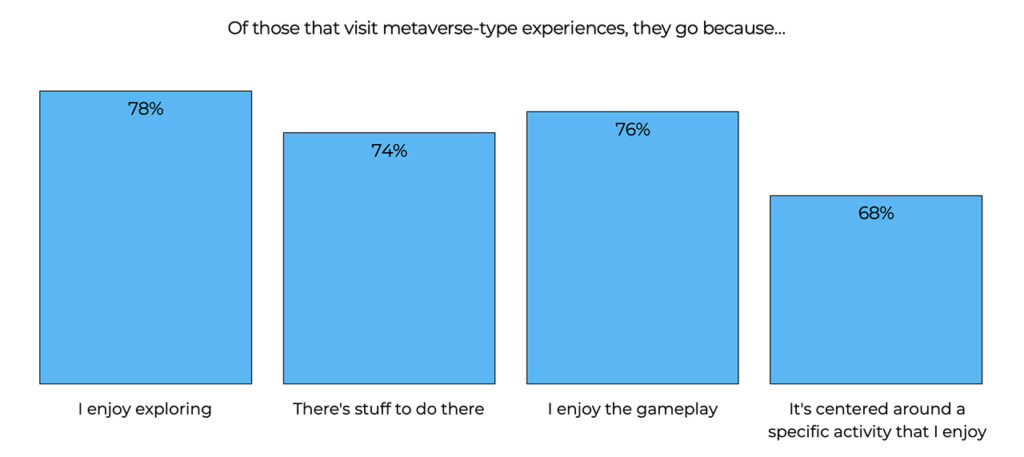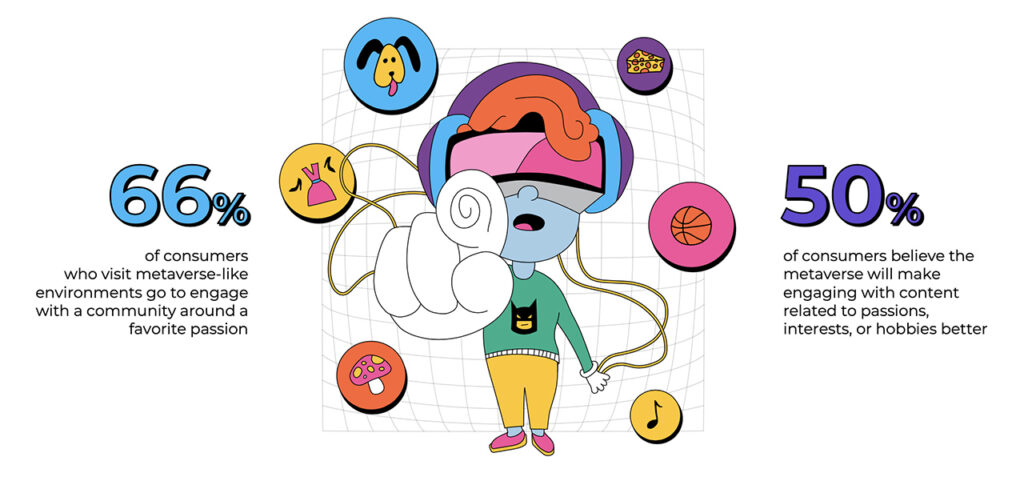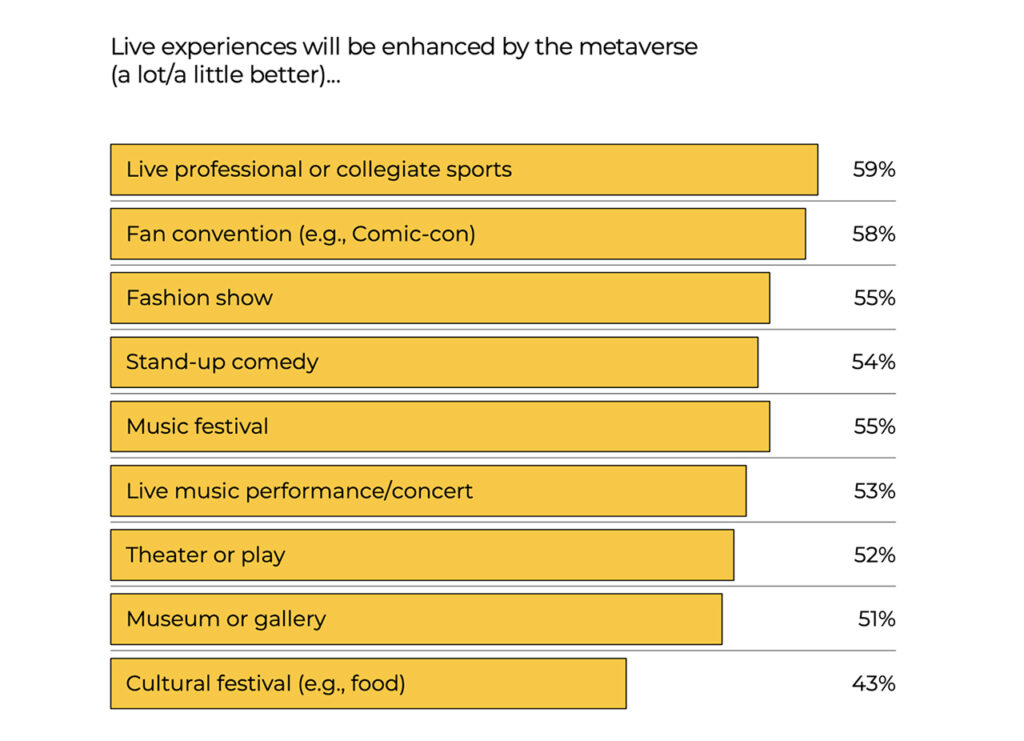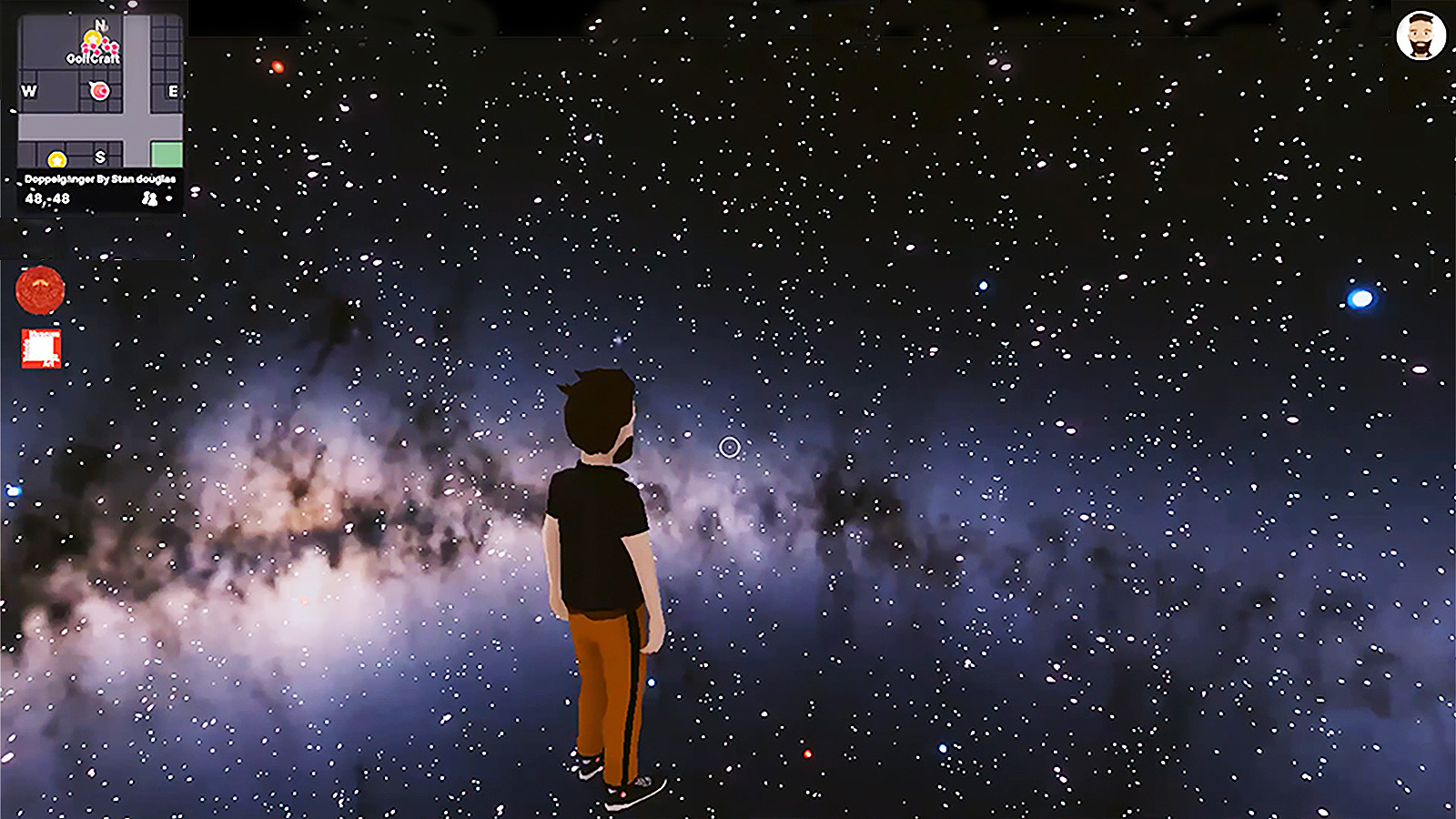While virtual environments have been present for decades, chiefly in the gaming sector, the idea of the metaverse has only lately gained mainstream and cultural traction. Riding on the winds of the NFT boom, virtual worlds such as Decentraland, The Sandbox, and Roblox have become key draws for organizations from Sotheby’s to Museum Of Science who see the promise of expanding their digital or Web3 footprint. But are consumers responding in kind?
A recent survey compiled by United Talent Agency and Vox Media, in partnership with data consultancy The Circus, provides insights. Unveiled at VidCon, Dissecting The Metaverse surfaces how users are engaging with the metaverse and the potential for virtual environments to reach broader adoption. The topline: out of the 4,050 Americans surveyed, 68 percent say they have engaged with the metaverse, largely via gaming platforms, with the Gen Z demographic (13 to 25-year-olds) representing the most avid consumers. According to the study, for Gen Z-ers, the metaverse represents an outlet for self-expression as much as self-actualization, particularly through their use of avatars.
As the metaverse now represents an industry estimated to reach market value in the trillions, UTA and Vox’s joint report offers further takeaways on how institutions and brands can add value to the metaversal offer and Gen Z users — and vice versa. Here’s a round-up.
Participation first

The report found that respondents overall enjoyed “being in the driver’s seat with the activities they do in the metaverse,” with exploration and gameplay being key factors. Image: Dissecting The Metaverse
Of Dissecting The Metaverse‘s respondents, about half say they’re not regular visitors, with a third of them explaining plainly that “there is nothing interesting to do there.” For organizations looking to build virtually, then, engaging content, activities, and experiences are vital to attracting visitors and creating stickiness around their offerings.
But rather than reaching for passive consumption (by, say, erecting a virtual gallery and leaving it be), metaversal experiences should center immersion and interactivity to ensure sustained engagement. They should involve and revolve around visitors, inviting them to actively participate by tapping what the survey found is a key Gen Z entry point: passion topics.
Games, games, games

Passion fuels users’ participation in the metaverse: more than half of those surveyed believed that metaversal content will help deepen their engagement with their hobbies and interests. Image: Dissecting The Metaverse
And what’s a key passion topic for virtual participants? Gaming, naturally. There are entire metaversal narratives and communities built around gaming IPs (and related fields like anime and comic books), as the virtual environment has proven effective in enhancing entertainment consumption. Close to half of the survey’s respondents report a preference to engage with gaming franchise IPs in a “new metaverse.”
For cultural practitioners who don’t run gaming franchises, this nonetheless points to an opening to integrate games into their metaversal presence. A gamified experience, after all, meets the demands of users for entertaining content, while ensuring their deeper engagement, especially so if players were allowed to customize their own gaming avatars or environments. Therein also lie further opportunities to encourage community-building and social sharing.
Going live

Live events such as fan conventions and concerts continue to be a draw in the metaverse, with more than half of respondents saying that museum or gallery experiences might be enhanced by the metaverse. Image: Dissecting The Metaverse
Since 2021, live events have been gaining steam in the metaverse. Chiefly, concerts by the likes of Travis Scott and Justin Bieber have been well-attended, while proving wildly profitable for the artists. And as Dissecting The Metaverse found, respondents rate other live metaversal activities such as fan conventions and theatrical performances above digital livestreams on mobile or desktop. In particular, 51 percent of those surveyed say a museum or gallery experience might be enhanced in the virtual environment.
As these consumers see it, a live metaversal event offers the central benefits of access (say 64 percent of respondents), an exclusive experience (51 percent), and augmentation (46 percent), as in unique or 360-degree views. Couple the latter with the fact that most respondents were expecting a “better experience” in the metaverse, there’s a clear window here for organizations to lead with distinctive, user-centric metaversal events that leverage the interactive features of the virtual space.



